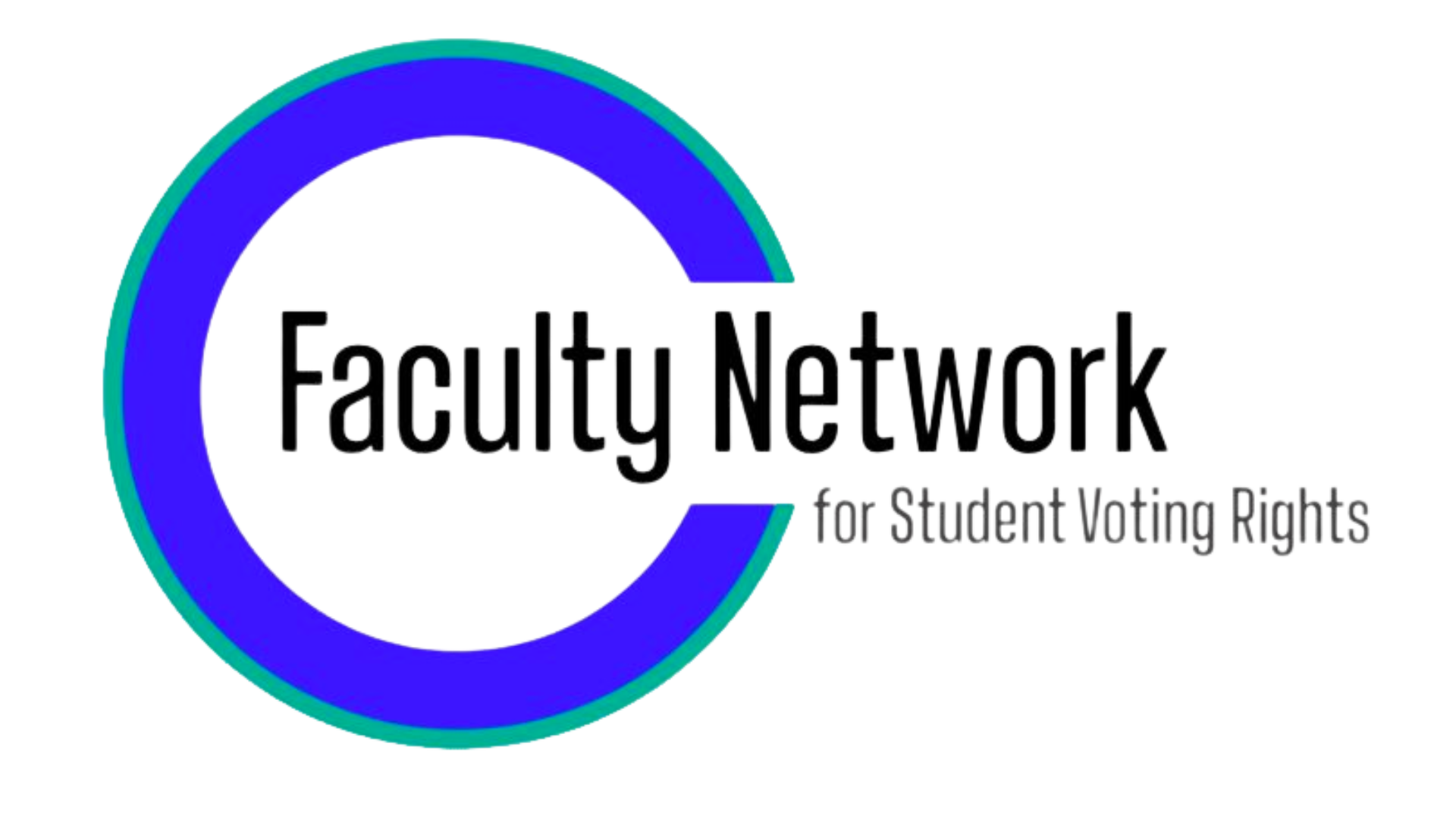Why do we need a Faculty Network to support student voting rights?
In recent years, and especially since 2016, hundreds of campus-based, state, and national organizations have been founded to register and turn-out students as voters [see the SLSV Coalition for a list of those]. To date, however, no networks or organizations have taken up the charge to organize faculty in support of students’ right to vote. The FacNet exists to fill that gap, by recruiting faculty at all levels and in all fifty states as institutional allies for student organizers.
How will we maintain a nonpartisan stance, and why?
Most universities and colleges are classified as 501c3 charitable organizations by the IRS, which means that they must rigorously abstain from any activity that a reasonable person would conclude is an endorsement of a candidate or party: that’s what “nonpartisan” means. Although your student rights activism may be volunteer-based, it is best to err on the side of caution and avoid language or acts that suggest support for particular candidates, or partisan agendas: we believe every student has the right to vote.
How can I receive more communication in the network?
Sign Up here! The Committees meet on a monthly basis.
How can I become more involved with the network?
Members may join one of our subcommittees, devoted to furthering a few of our different goals. Time commitment is flexible. The groups will help further our long-term efforts and help us focus on the needs and perspectives of faculty members. The subcommittees include:
- Tenure, Promotion, and Reappointment
- Curriculum & Scholarship
- Local Elections
- STEM Mobilization
- Voter Engagement and Redistricting
If interested in joining, please fill out THIS FORM!
What would a member of the network actually do on her or his campus?
The 1998 Reauthorization of the Higher Education Act of 1965 requires college and university administrations to make good-faith efforts to facilitate students registering to vote. As faculty, we are in a position to insist that our deans and presidents fulfill that obligation. We can also help students gain access to campus resources—from funding and meeting space, to assistance with social media and communications. Finally, our classrooms are crucial spaces for education on voting rights. Faculty can welcome nonpartisan volunteers into classes to register students, and publicize the correct information about when and where to vote as Election Day approaches.
Why are state networks necessary?
The Constitution gives the individual states the authority to regulate elections, national elections in the U.S. are effectively fifty separate elections. How voter registration works, whether or not there is mail-in or early voting, the administration of provisional ballots, hours of polling places, and much more varies greatly from state-to-state, and often from county-to-county. Faculty need to network within their own states, where they will confront procedures and problems unique to their particular legal framework.
